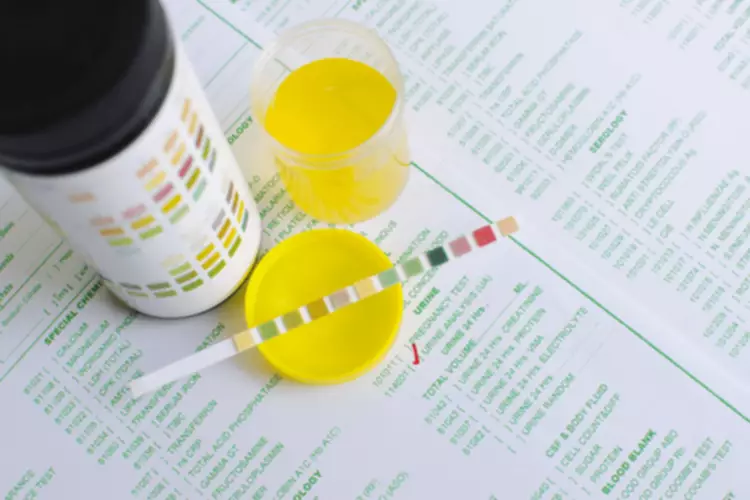Family Allergy Asthma & Sinus Care Do you sneeze when you sip that fine red wine? Wine allergy?

Additionally, maintaining a healthy lifestyle with regular exercise and a balanced diet can boost the immune system and potentially minimize allergic reactions. Histamines are naturally occurring compounds that are produced during the fermentation process of wine. They can trigger chemical reactions and cause symptoms like headaches, skin flushing, nasal congestion and asthma attacks in those with histamine intolerances. If you’re allergic to red wine, you might experience symptoms such as flushing, hives, runny or stuffy nose, and severe headache shortly after consumption. In some cases, you may also have stomach cramps, vomiting, or diarrhea. Symptoms of wine hypersensitivity include flushing, hives, nasal congestion, asthma, and in severe cases, anaphylaxis.
Why Does Wine Cause a Stuffy Nose?
- All of these beverages have the same amount of ethanol and should cause the same reactions.
- And if you already have allergies, bronchitis or asthma, drinking wine might cause you to be more miserable.
- The best strategy is to identify the specific allergen in wine and avoid consuming it in the future.
- Researchers suggest that the most common causes of Red Wine Allergies, however, are the protein-containing clearing agents.
- All condition, treatment and wellness content is medically reviewed by at least one medical professional ensuring the most accurate information possible.
Wine allergy can be treated through a combination of avoidance and medical treatment. Managing a wine allergy primarily involves avoiding the specific wine or wine components that cause your allergic reactions. Medical treatment can help manage symptoms when avoidance is not entirely possible. Lastly, those with a wine allergy may also experience allergic reactions to other foods and beverages that contain similar allergens. Therefore, a comprehensive understanding of your allergenic profile can help manage your symptoms better. These include genetic predisposition, the amount of wine consumed, and the presence of specific allergens in wine, such as sulfites or proteins from grapes.
How to prevent a wine allergy
Another potential complication is worsening of pre-existing conditions, such as asthma or other allergies. For example, if you have asthma and are allergic to wine, consuming wine can trigger an asthma attack. Just as climate change has been exacerbating seasonal allergies, consumption of wine can aggravate other allergies, leading to more severe reactions. The symptoms of a wine allergy can vary, but they typically appear shortly after consuming wine.
Red Wine Allergy
But right off the bat you’re more likely than a guy to need to lay off the adult juice. We’ve been using sulfites as food preservatives for thousands of years. Foods containing sulfites include E numbers (shown as E220 to E228 in their list of ingredients).
What Red Wine Does to Your Allergies

Understanding these factors can help individuals manage their reactions better and seek appropriate treatment. It’s important to differentiate between a wine allergy and a wine intolerance. An allergy involves an immune system response and can potentially cause severe, life-threatening symptoms, such as anaphylaxis. On the other hand, an intolerance is a digestive system response and, while uncomfortable, is generally not dangerous. Symptoms of intolerance may include headaches, flushing, and stomach upset.
An intolerance to wine can mimic some allergy symptoms, but it has more to do with how you digest alcohol. For genetic or metabolic reasons, your body has trouble breaking down ethanol — the alcohol — in wine. Anaphylaxis is a serious allergic reaction that can cause a range of red wine sneezing symptoms, including difficulty breathing, swelling in the throat, a rapid, weak pulse, dizziness, or fainting. If left untreated, anaphylaxis can lead to shock, heart or lung failure, and even death. One common method for diagnosing wine allergies is through skin prick tests.

If you experience symptoms after consuming wine, seek medical advice to ensure an accurate diagnosis and appropriate treatment. If you’re allergic to wine, you may experience symptoms such as flushed skin, nasal congestion, vomiting, diarrhea, or rapid heartbeat shortly after consumption. Severe reactions could include difficulty breathing or a sudden drop in blood pressure.
- However, the usual accompaniment of food can sometimes cause discomfort.
- It happens if your ALDH2 enzymes (remember those?) aren’t particularly effective at their job, or if your body just doesn’t make enough ALDH2 enzyme in the first place.
- Those with more severe sulfite sensitivities may experience symptoms like breathing problems and skin reactions.
- In some cases, sublingual immunotherapy might be a treatment option.
